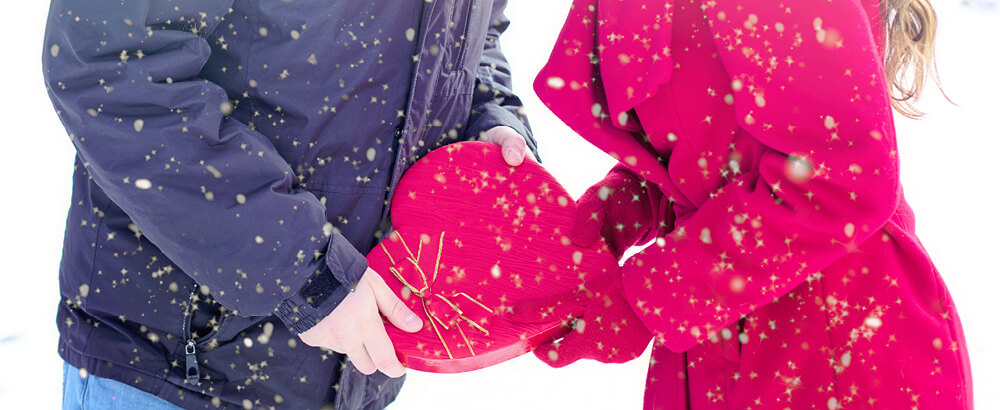Allergic to Valentine’s Day?

On Valentine’s Day, millions of heart-shaped boxes of candy and bouquets of flowers will be exchanged. This sweet holiday has its heart in the right place, yet for those who suffer from allergies, it can be a little sour. Making the perfect Valentine’s Day plans can be stressful enough without planning for food and other allergies. Whether you are concerned about your own gift exchange, worried about sending your child to school for a party, or making sure your teenager is ready for their Valentine’s date, see our tips below.
Possible Allergens on Valentine’s Day:
Candy – One of the most popular gifts on Valentine’s day, many boxes of candy come with an assortment of different kinds of chocolates, including those with potential allergens like nuts or dairy. When you ask someone “Will you be mine?”, also, ask if they have any food allergies. Communication is key, and this information will come in handy for dinner plans as well.
Flowers – The bouquet of flowers, are a wonderful Valentine’s gift unless you have certain plant allergies. Luckily, you’ll be safe if you stick with the classic dozen roses, as roses tend to have less pollen. Other flowers known to have less pollen are iris, lily, pansy, periwinkle, and tulips.
Perfume/Scents – Go light or without perfume or cologne for your Valentine’s date. Heavy fragrances can irritate airways and even trigger an asthma attack.
Jewelry – If you are looking to impress this Valentine’s Day, a set of earrings or a necklace are always a good option. Jewelry can be made of or contain nickel, a common skin allergen. An allergy to nickel can leave your sweetheart with an itchy rash, so stick to the good stuff.
Dinner – If you are cooking dinner yourself it will be easier to control for food allergens. However, if you plan to have a special night out, it might be best to call ahead and ensure they can accommodate food allergies. Many restaurants have a prix fixe menu for special nights, even if they don’t, they are often very busy on Valentine’s Day. Talking to the manager and chef ahead of time can help ease some tension on your special night.
Valentine’s Day Allergies in the Classroom
Many schools host Valentine’s parties to exchange cards and other gifts. Talk to your child’s teachers in advance about keeping the event safe for your child. It’s important they understand the severity of your child’s allergy, and it’s your job to communicate that if your child cannot. Encourage the exchange of non-food items like handmade valentines, paper flowers, or friendship bracelets instead of candy. If possible, offer to volunteer during the party and help coordinate games and other non-food activities on the day of.
Also, remind your child that if he or she is offered candy they cannot eat, it is okay to turn it down or to check with an adult. Similar to Halloween, bags of miniature candy can have different allergens on the labels.
Valentine’s Day Allergies and Your Teenager
Valentine’s Day can be an exciting time for your teenager, yet it’s even scarier for parents. Teens might feel awkward about talking to their date about their allergies, however, their date may not know to ask about them. Remind your teenager that it’s less awkward to talk about it than to turn down a box of chocolates with potential allergens. It’s also important to talk about the danger of kissing someone who recently consumed items they’re allergic to. It’s recommended the non-allergic partner either avoid the food allergen completely or brush his or her teeth and rinse their mouth before kissing.
Lastly, while reminding them of their evening curfew, have them to bring their epinephrine auto-injector as well.
When you are thinking of your sweetheart this holiday, make sure you get them a gift to knock them off their feet, but not literally.


Leave a Reply
Want to join the discussion?Feel free to contribute!